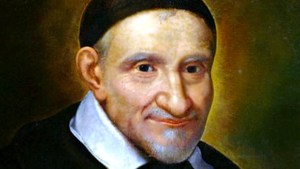Once I saw a car crash right in front of mine. There was a blizzard, we were on the highway, and the wind picked up the front end of the car and pushed it at high speed into a snowbank on the side of the road. In shock, I drove a bit up the road, pulled off the highway, and called the ambulance. I drove on, satisfied I had done my duty. As I continued my drive, a delayed reaction dawned like a lamp finally being turned on – Why didn’t I stop and help? Who knows how far away the ambulance actually was? My obligation to that driver should not have ended with a simple phone call. I took the easy way out and chose to put the car wreck in the rear-view mirror.
To this very day, I think about moments like this, times I could have helped but instead assumed someone else would take care of it. There’s comfort in deferring because it feels like we’re off the hook with no guilt. Someone else will feed the poor, someone else will volunteer at church, someone else will make the phone call to that friend who desperately needs to talk. And sure, for people in need, there are all sorts of organizations and government programs that are effective at what they do and have resources that an individual person doesn’t have. I support the existence of these invaluable organizations and am not arguing I can take their place, but what we must keep in mind is that simply writing a check to a charity or paying our taxes doesn’t mean we’ve shown true compassion. Knowing there’s an ambulance down the road somewhere doesn’t mean we don’t have a personal obligation to our fellow human beings.
About a year ago, I became chaplain to a cluster of St. Vincent de Paul conferences headquartered at various parishes near mine. St. Vincent wasn’t overly familiar to me and the particular brand of Vincentian spirituality that has taken his name wasn’t a part of my theological education, so I took a deep dive into the writings and principles that underlie the holiness of this remarkable man.
St. Vincent lived in the 17th century in France. He was ordained a priest in 1600, was said to have been captured and enslaved for a short period of time by pirates, and eventually settled in Paris where he worked with wealthy Catholics to create informal charitable societies that focused on making personal visits to the poor. He was aware that making personal visits with food was much harder than donating money for a new soup kitchen, but he insisted on the visits, saying, “You will find out that Charity is a heavy burden to carry, heavier than the kettle of soup and the full basket. But you will keep your gentleness and your smile. It is not enough to give soup and bread.”
In other words, those who are poor deserve not only our bread, but our love. If we cannot offer them compassion along with sustenance, then we are failing them.
Compassion cannot be delegated. St. Vincent says, “Charity is certainly greater than any rule. Moreover, all rules must lead to charity.” If I want to be a truly compassionate person, I cannot simply call the ambulance, refer someone to the soup kitchen, or send them to a government program. Those organizational safety nets are a piece of the puzzle, but in the end, what each person deserves is the personal compassion of another human being. This is why the local St. Vincent de Paul conferences at each parish insist on personal contact within the local neighborhood. While assisting with food and bills, home visits are important, praying for people is important, simply asking about a person’s well-being or their family is important. Is this the most efficient way to handle human hardship? Absolutely not. That takes a lot of time and energy. But our neighbors deserve the personal contact.
So, what is compassion, really? It’s the willingness to stop and talk for a minute, make a phone call, ask about someone’s sick family member, pray for a friend, run an errand for an elderly neighbor. Compassion isn’t efficient or economical, but it’s deeply personal and deeply human. It asks something of each of us. In the end, that personal effort, that little sacrifice, turns out to be not a gift that I give to other people but an opportunity for them to give me a gift.
Compassion is most of all an act of friendship and brotherhood. It builds bridges and creates community. This is why I say that compassion is a two-way street. If I am willing to make the effort, the reward is a genuine, rewarding human connection. What St. Vincent understood so well is that compassion isn’t about pity or expediency, it’s an opportunity for people to slow down and give a little of themselves to each other. These human connections are what life is all about, and it’s an opportunity I won’t ever drive past again.

Read more:
How to be compassionate while disciplining your kids

Read more:
Simple advice on prayer from St. Vincent de Paul

